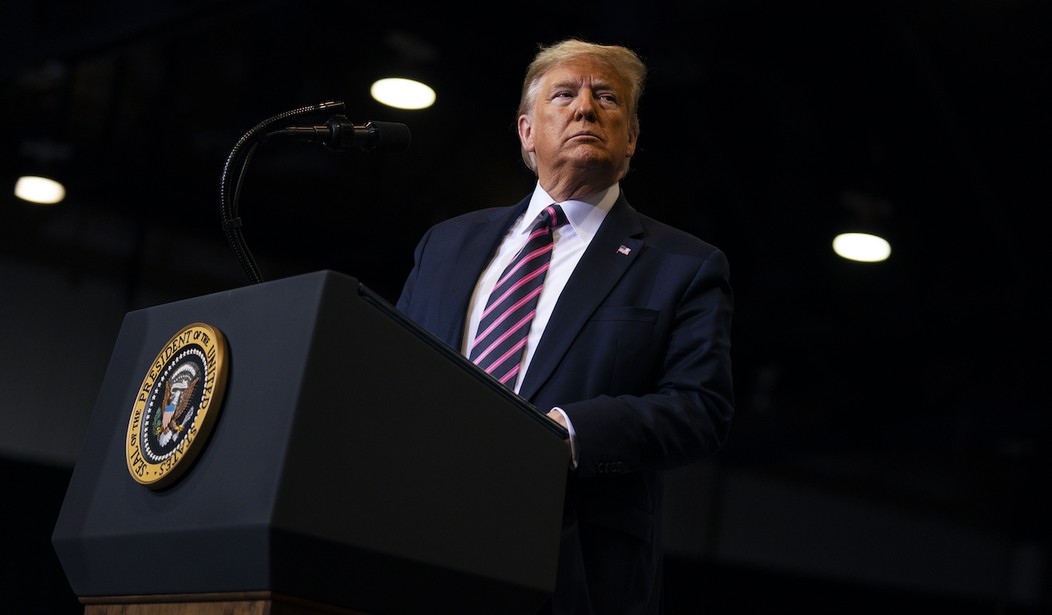President Donald Trump signed an executive order championing religious freedom on Tuesday, commemorating the anniversary of Pope John Paul II’s historic journey back to Poland, which sparked the freedom movement that toppled the Soviet Union. Trump’s executive order directs $50 million to advance religious freedom outside the U.S. and allows the U.S. Treasury to impose sanctions on countries that violate religious freedom — amid increasing tensions over China’s coronavirus malfeasance.
Today, on the 41st anniversary of Pope John Paul Il’s first pilgrimage to Poland, @Potus signed an Executive Order supporting International Religious Freedom. pic.twitter.com/O5e7ydFOOO
— Melania Trump (@FLOTUS) June 2, 2020
“Religious freedom, America’s first freedom, is a moral and national security imperative,” the order states. “Religious freedom for all people worldwide is a foreign policy priority of the United States, and the United States will respect and vigorously promote this freedom. As stated in the 2017 National Security Strategy, our Founders understood religious freedom not as a creation of the state, but as a gift of God to every person and a right that is fundamental for the flourishing of our society.”
Trump’s order directs Secretary of State Mike Pompeo to work with USAID to shape U.S. foreign policy and foreign aid programs around the vital priority of religious freedom. It directs USAID to spend $50 million per year on programs that advance international religious freedom, including programs to help persecuted groups respond to attacks, promote accountability for attackers, ensure that governments do not discriminate against religious groups, to improve houses of worship, and to preserve the cultural heritages of religious communities.
The order also directs Pompeo and any future secretaries of State to shape U.S. foreign policy around the designation of countries of particular concern as highlighted in the Annual Report on International Religious Freedom.
Trump’s order also directs Pompeo and Treasury Secretary Steve Mnuchin to employ “economic tools” against countries the violate religious freedom, including “imposing sanctions.”
In May, the U.S. Commission on International Religious Freedom (USCIRF) once again ranked the People’s Republic of China as one of the top three countries of “particular concern.”
Persecution.org reported that the persecution of Christians in China is even worse than USCIRF reported. “In provinces all over China, Christian schools, teachers, and business owners are forced to sign documents to reject their religion, or the government will retrieve their pensions. Local authorities had raided or seized hundreds of Christian house churches. Cross removal continues to take place despite these churches’ official affiliation. The Chinese Communist Party (CCP) has also charged pastors with subversion of state power, although such sentencing is unconstitutional according to their own laws,” the outlet reported.
China also notoriously persecutes Uyghur Muslims, keeping them in “concentration camps.” Beijing has also cracked down on religious minorities in Tibet.
As countries across the world consider whether or not to take action against the CCP for its coronavirus lies and malfeasance, Trump’s religious freedom order sends a strong message to the Chinese Communist Party.
By signing the order on the anniversary of John Paul II’s visit to Poland, which sparked the movement that destroyed communism in the U.S.S.R., Trump sent a powerful signal against the remaining communist regime.
Tyler O’Neil is the author of Making Hate Pay: The Corruption of the Southern Poverty Law Center. Follow him on Twitter at @Tyler2ONeil.









Join the conversation as a VIP Member